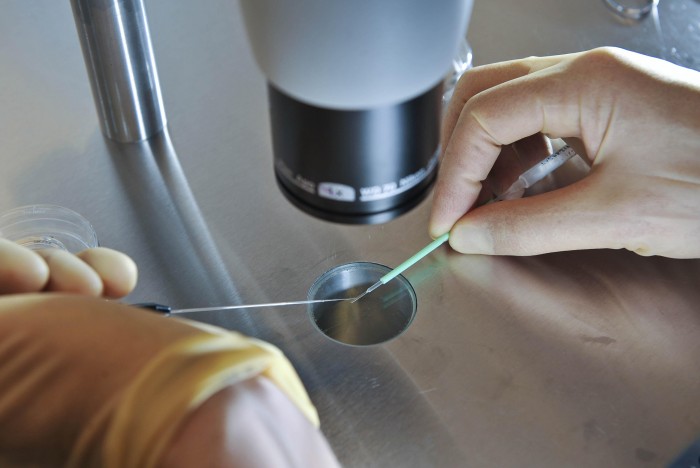U.K. Approves Genetic Editing of Healthy Human Embryos
It’s a world first: a U.K. government panel has given the go-ahead for researchers, led by Kathy Niakan at the Francis Crick Institute in London, to edit healthy human embryos.
This isn’t the ethical morass it might at first appear to be. The researchers will use the powerful gene-editing tool CRISPR-Cas9, but their work has nothing to do with fixing faulty genes in a developing fetus or bringing designer babies into the world.
The experiment involves growing edited embryos in a lab for no more than seven days. By the time growth is stopped, each embryo will be just a clump of between 64 and 256 cells. Were it sitting in a woman’s uterus, it wouldn’t even have implanted yet. The researchers say the point of the work is to study how embryos develop in the earliest stages after conception in the hopes of understanding more about infertility and miscarriages.
As the technology improves, it seems like it's just a matter of time before it will become realistic to use CRISPR to engineer babies, treat diseases in adults, and tweak the genes of a whole host of other animals and plants. This research isn’t that, and it should scare no one. The broader ethical and moral questions, however, are important. The good news is the conversation around them is already underway.

Keep Reading
Most Popular
Large language models can do jaw-dropping things. But nobody knows exactly why.
And that's a problem. Figuring it out is one of the biggest scientific puzzles of our time and a crucial step towards controlling more powerful future models.
The problem with plug-in hybrids? Their drivers.
Plug-in hybrids are often sold as a transition to EVs, but new data from Europe shows we’re still underestimating the emissions they produce.
Google DeepMind’s new generative model makes Super Mario–like games from scratch
Genie learns how to control games by watching hours and hours of video. It could help train next-gen robots too.
How scientists traced a mysterious covid case back to six toilets
When wastewater surveillance turns into a hunt for a single infected individual, the ethics get tricky.
Stay connected
Get the latest updates from
MIT Technology Review
Discover special offers, top stories, upcoming events, and more.